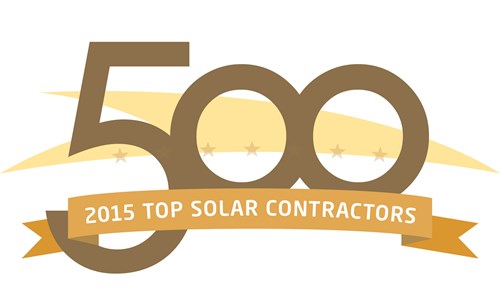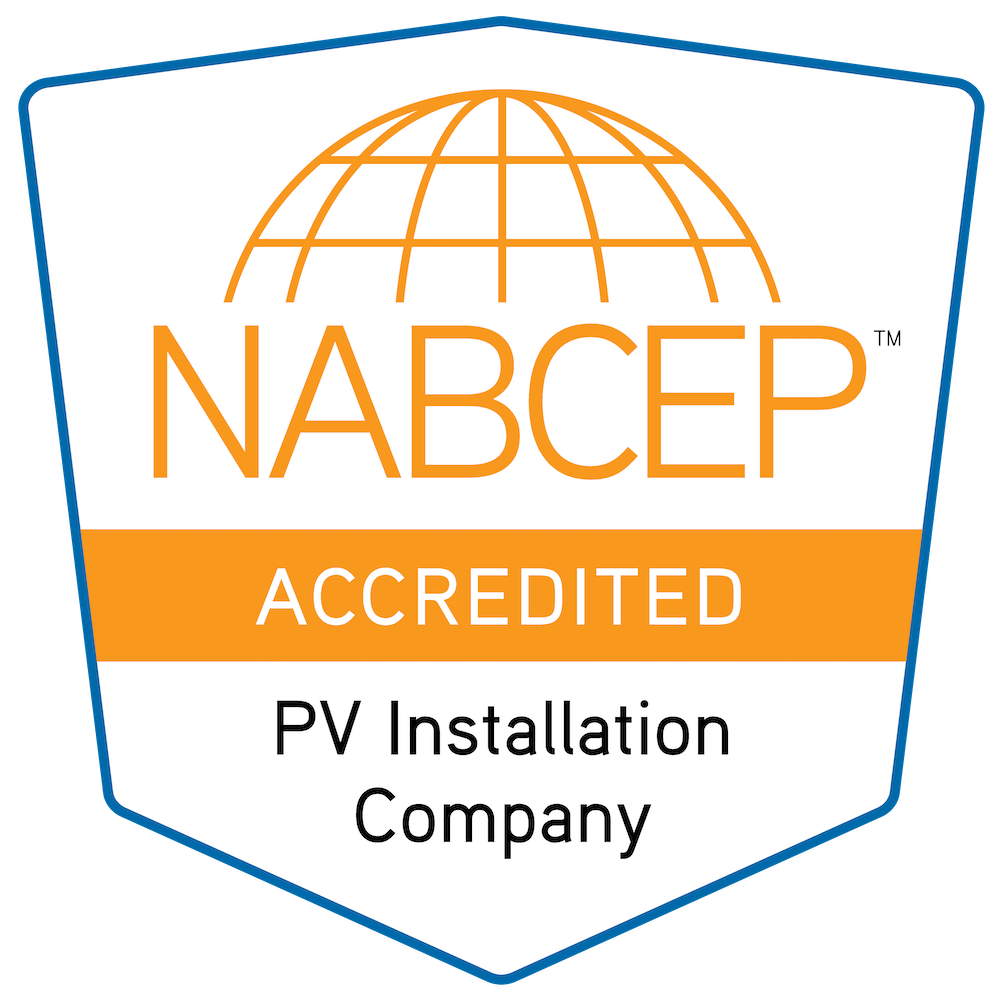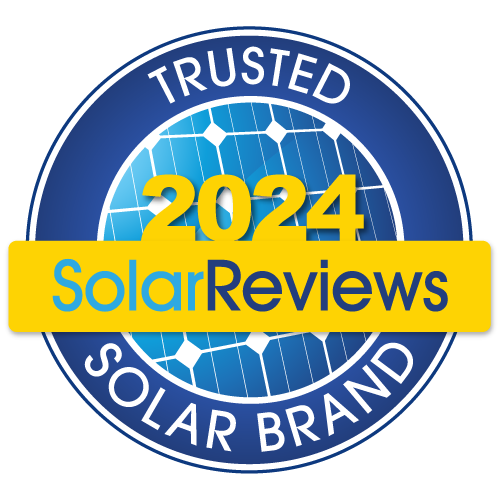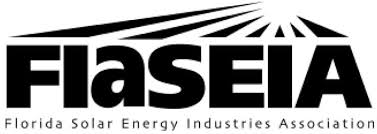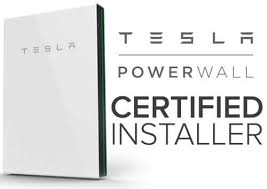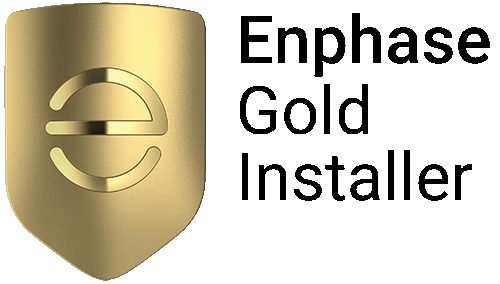A1A Solar answers your commercial solar questions
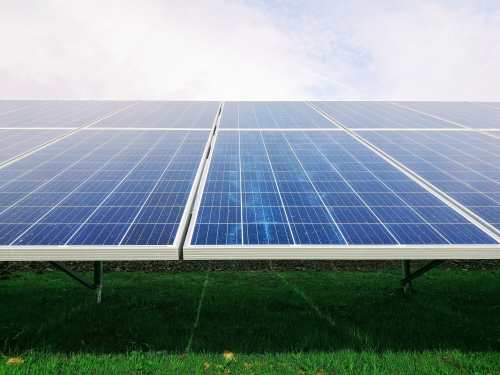
 You may have heard that many Fortune 500 companies are going solar. The benefits to clean energy are certainly numerous; however, taking your company solar may seem overwhelming. A1A Solar is ready to help you invest in your company and begin reaping the rewards of a commercial solar energy system. Here are some frequently asked questions to help you understand the process of going solar.
How do solar panels work?
Solar panels absorb sunlight with photovoltaic cells and use an inverter to change direct current power to alternating current power. This conversion creates electricity for commercial use.
How long do solar panels last?
Standard solar panel warranties last 25 years. A typical central inverter will last between 10 and 15 years, meaning you’ll have to replace it at some point during the lifetime of your solar panels.
What is commercial solar and why should I have it?
Commercial solar is a solar power system for companies. It’s different from residential solar in that residential applies to individual homes. The benefits of commercial solar occur on a much larger scale than residential solar.
The main reason companies invest in commercial solar is to save money in the long run. The annual energy cost for a business grows by about 3% each year. When you no longer have to pay that fee, you end up saving a great deal of money. It typically takes six to seven years to begin to see a return on your investment. In addition to the money your company saves on energy bills, with a solar energy system, you receive a 30% tax credit with accelerated depreciation.
Another important reason companies invest in commercial solar is to show their customers their commitment to helping the environment. Solar panels do not emit pollution into the atmosphere.
Is going solar feasible for small and medium companies?
Most definitely. More and more small- and medium-business owners are going solar as they realize the financial opportunities that come with it. Don’t let the size of your company be the deciding factor. There’s always an opportunity to save money for your business in the long run, no matter the size.
How do I know what size system to select for my company?
First, decide how much electricity your company uses. Having a 12-month usage history and an idea of when you use your energy can help you figure this out. Assess your budget for the solar panel system and the remaining electricity bill. One of our solar professionals can help you pick a system that fits your company’s needs.
What is net metering?
Net metering allows you to use generated electricity anytime you want, instead of right when your system generates it.
You may have heard that many Fortune 500 companies are going solar. The benefits to clean energy are certainly numerous; however, taking your company solar may seem overwhelming. A1A Solar is ready to help you invest in your company and begin reaping the rewards of a commercial solar energy system. Here are some frequently asked questions to help you understand the process of going solar.
How do solar panels work?
Solar panels absorb sunlight with photovoltaic cells and use an inverter to change direct current power to alternating current power. This conversion creates electricity for commercial use.
How long do solar panels last?
Standard solar panel warranties last 25 years. A typical central inverter will last between 10 and 15 years, meaning you’ll have to replace it at some point during the lifetime of your solar panels.
What is commercial solar and why should I have it?
Commercial solar is a solar power system for companies. It’s different from residential solar in that residential applies to individual homes. The benefits of commercial solar occur on a much larger scale than residential solar.
The main reason companies invest in commercial solar is to save money in the long run. The annual energy cost for a business grows by about 3% each year. When you no longer have to pay that fee, you end up saving a great deal of money. It typically takes six to seven years to begin to see a return on your investment. In addition to the money your company saves on energy bills, with a solar energy system, you receive a 30% tax credit with accelerated depreciation.
Another important reason companies invest in commercial solar is to show their customers their commitment to helping the environment. Solar panels do not emit pollution into the atmosphere.
Is going solar feasible for small and medium companies?
Most definitely. More and more small- and medium-business owners are going solar as they realize the financial opportunities that come with it. Don’t let the size of your company be the deciding factor. There’s always an opportunity to save money for your business in the long run, no matter the size.
How do I know what size system to select for my company?
First, decide how much electricity your company uses. Having a 12-month usage history and an idea of when you use your energy can help you figure this out. Assess your budget for the solar panel system and the remaining electricity bill. One of our solar professionals can help you pick a system that fits your company’s needs.
What is net metering?
Net metering allows you to use generated electricity anytime you want, instead of right when your system generates it.
Solar panels vs. solar water heaters
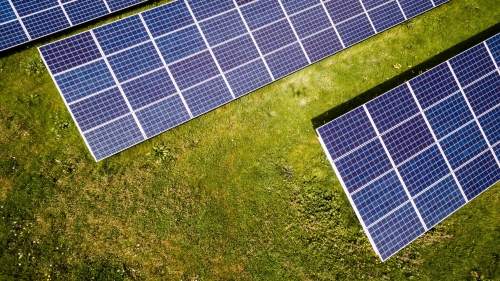
 What is the difference between solar panels and solar water heaters?
What is the difference between solar panels and solar water heaters?
While most people know what solar panels look like, they might not know their exact purpose. Solar panels convert sunlight into electricity through the photovoltaic effect. This process happens when panels absorb photons, which creates an electric current. When photons hit the crystalline photovoltaic cells, it generates DC energy. Below is a diagram that shows how the panels absorb sunlight and how it becomes energy.
 DC and AC conversions meet the power needs of a home or company, creating a seamless connection between solar and utility. Net-zero is when the total amount of energy a building uses is roughly the same as the amount of energy its solar system creates. Being net-zero can help to reduce your energy bill up to 90%.
DC and AC conversions meet the power needs of a home or company, creating a seamless connection between solar and utility. Net-zero is when the total amount of energy a building uses is roughly the same as the amount of energy its solar system creates. Being net-zero can help to reduce your energy bill up to 90%.
 Solar water heaters use a different process to create energy. Solar panels heat water that then flows to a tank that stores it until you use it. In order to keep your solar water heater clean, you must flush it once a year.
The difference between solar panels and solar water heaters is simply the purpose of each. Solar panels create electricity and solar water heaters use the sun to heat up water, which is then pumped into your home.
Solar water heaters use a different process to create energy. Solar panels heat water that then flows to a tank that stores it until you use it. In order to keep your solar water heater clean, you must flush it once a year.
The difference between solar panels and solar water heaters is simply the purpose of each. Solar panels create electricity and solar water heaters use the sun to heat up water, which is then pumped into your home.
Commercial Solar System
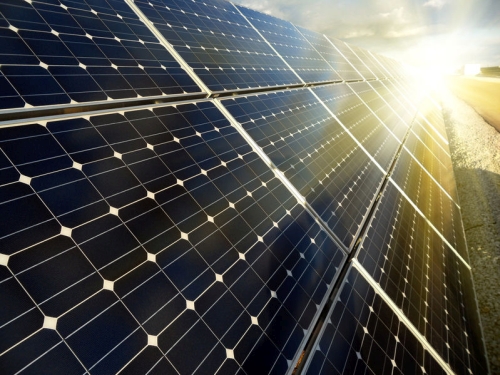

Getting a commercial solar system set up in Northeast Florida
6 steps to ensure your company’s solar system installation is a success
Your company is ready to go solar. That’s great! However, you might feel overwhelmed by what to do to get started. Read on to learn how to get a solar energy system installed for your company.
1. Make sure your company owns the property. This step is essential. You won’t be able to add a solar energy system if you don’t own the property.
2. Select a solar energy company. Ensure the company you choose is certified and licensed, so you receive a quality installation.
3. Meet with representatives from the company. The solar system contractor will set a meeting to evaluate your company’s property and find the best spot to install the solar energy system. Then, the company will work with you to develop a plan for your system.
4. Dealing with bureaucracy. After the plan is complete, the solar energy company will contact your electricity provider to seek approval. Your solar energy system essentially adds to existing systems on the grid, so the electricity provider needs to be aware of how your plan works. Be prepared to alter your plan to suit the electricity provider’s requirements.
Your solar system contractor will also contact your local government representatives to get the required permits and inspections.
5. Begin the process. Once your electricity provider approves the plan, your solar energy company will begin implementing your system. It usually takes a few months to get your solar energy system online, so make sure you’re allocating enough time for this step.
6. Another inspection. Once the process is complete, the local government will send another inspector to make sure the system is up to code and meets plan specifications.
Getting your company set up with a solar energy system isn’t hard. Your solar energy company will handle most of the heavy work, including dealing with bureaucracy. The only truly difficult part is having to wait for your system to be complete so you can enjoy it. Once it’s done, your company will reap the benefits.
While solar industry jobs decrease around the country, they’re increasing in Florida
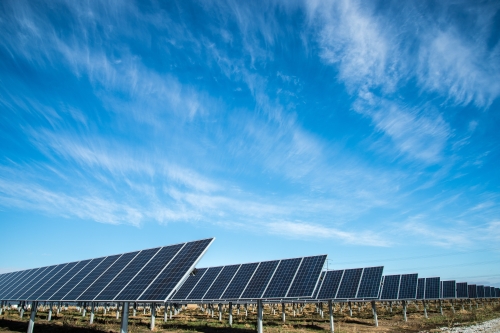
 Floridians love a hot summer day. “Sunny and 75” is a motto we know and love. When the weather reaches 50 degrees, we’re reaching for our winter coats. So, solar power seems like a no-brainer to meet the energy needs of any Floridian. In the last year, there has been a significant increase in solar industry jobs in Florida due to a high demand for solar energy systems. Across the rest of the nation, however, solar industry jobs last year decreased. The U.S. as a whole shows a 3.2 percent decrease in solar industry jobs, whereas the number of jobs in Florida have increased by 21 percent. The Solar Foundation believes that the decline in jobs in the U.S. came from a pause in work due to a petition about new tariffs on solar panels and cells. However, in spite of that petition, Florida is seeing more high-profile solar projects.
Floridians love a hot summer day. “Sunny and 75” is a motto we know and love. When the weather reaches 50 degrees, we’re reaching for our winter coats. So, solar power seems like a no-brainer to meet the energy needs of any Floridian. In the last year, there has been a significant increase in solar industry jobs in Florida due to a high demand for solar energy systems. Across the rest of the nation, however, solar industry jobs last year decreased. The U.S. as a whole shows a 3.2 percent decrease in solar industry jobs, whereas the number of jobs in Florida have increased by 21 percent. The Solar Foundation believes that the decline in jobs in the U.S. came from a pause in work due to a petition about new tariffs on solar panels and cells. However, in spite of that petition, Florida is seeing more high-profile solar projects.
Florida is now in second place for states with the highest number of solar industry jobs, with 10,358 people employed in the solar energy industry. California is first, with 76,838 people working in solar-related jobs.
Statisticians predict solar industry jobs will continue to increase in Florida over the next few years. JEA has planned for five new solar facilities by 2022, and it plans to increase its solar capacity from 39 megawatts to 289 megawatts by that time. JinkoSolar will employ 200 people at its new plant at Cecil Commerce Center. Another solar employer is Florida Power and Light Co., which has 18 plants in Florida.
Despite current trends across the U.S., The Solar Foundation shared a report that predicted jobs in the industry will increase in 2019 by 7 percent. And by 2026, employment in the solar energy industry will increase by 63.4 percent.
Solar tax credit: Why 2019 is the year to think wise and solarize


Why 2019 is the year to think wise and solarize to save big on your taxes.
In 2005, Congress passed the Energy Policy Act, a law that, among other things, allows a federal tax credit for up to 30 percent of the cost of a new solar energy system for a commercial or residential property, including installation fees. Originally set to expire in 2007, the credit now extends until 2021 for residential solar energy systems, with benefits for commercial solar energy systems continuing beyond 2022. However, there’s a catch. Starting in 2020, the amount you can save on a newly installed solar energy system will decrease. This year is the last year you can get the full 30 percent federal tax credit. The percentage decreases year over year until 2022, when those with new residential solar energy systems get no federal tax credits at all. New commercial solar energy systems will get 10 percent. Federal tax credit value per year for solar energy systems:- 2019: 30 percent for new residential or commercial
- 2020: 26 percent for new residential or commercial
- 2021: 22 percent for new residential or commercial
- 2022 and on: 0 percent for new residential, 10 percent for new commercial
Solar energy batteries are getting less expensive
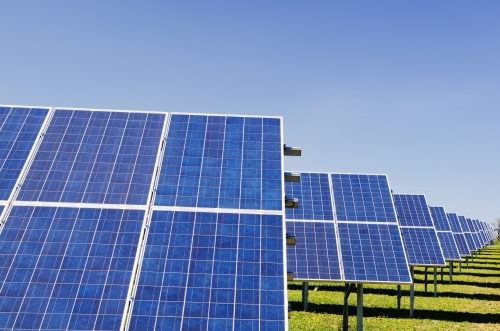
Now is the time to purchase a backup battery for your solar energy system
 A solar energy battery is a wise investment for anyone with a solar energy system, as it allows your system to keep operating when the sun isn’t providing enough energy on its own. In the beginning of 2010, solar energy batteries were rare to see with solar energy systems. Now, most solar system owners have a backup battery. What changed?
Originally, few people purchased solar energy batteries because they were expensive. Then, around the mid-2010s, solar battery prices began dropping dramatically. While there isn’t any solid data yet, many believe the price decrease was due to a huge spike in demand for solar energy systems. As more people purchased systems for their homes and businesses, they realized they needed a backup battery to keep their systems running without interruptions.
Why did the demand for both solar energy systems and batteries increase? Home and property owners wanted to save money on their utility bills and through tax breaks. There was also a trend toward being more environmentally friendly. What better way to reduce your carbon footprint than by having an energy system that draws power straight from the sun, instead of relying on coal-powered energy plants?
Thanks to the popularity of solar energy systems, it’s more affordable than ever to have a solar energy battery. It’s the best time to get one.
A solar energy battery is a wise investment for anyone with a solar energy system, as it allows your system to keep operating when the sun isn’t providing enough energy on its own. In the beginning of 2010, solar energy batteries were rare to see with solar energy systems. Now, most solar system owners have a backup battery. What changed?
Originally, few people purchased solar energy batteries because they were expensive. Then, around the mid-2010s, solar battery prices began dropping dramatically. While there isn’t any solid data yet, many believe the price decrease was due to a huge spike in demand for solar energy systems. As more people purchased systems for their homes and businesses, they realized they needed a backup battery to keep their systems running without interruptions.
Why did the demand for both solar energy systems and batteries increase? Home and property owners wanted to save money on their utility bills and through tax breaks. There was also a trend toward being more environmentally friendly. What better way to reduce your carbon footprint than by having an energy system that draws power straight from the sun, instead of relying on coal-powered energy plants?
Thanks to the popularity of solar energy systems, it’s more affordable than ever to have a solar energy battery. It’s the best time to get one.
Do solar panels work in the rain?

How does the weather affect your solar energy system?

How to prepare your solar energy system for winter in Florida

Get your solar energy system ready for winter
Winter is the most difficult time of the year for solar energy production. In some areas, snow covers solar panels and clouds hide the sun, both of which reduce energy output. While solar energy system owners in northeast Florida typically don’t have to worry about snow, they should make preparations to deal with the decreased amount of sunlight during the day and for cloudy days that are common during winter. Making these adjustments is important for your solar energy system to continue working optimally.
During the winter months, the days are shorter, which means that energy production will be less. In order to compensate for this problem, you should change the angle of your solar panels. The way you should angle your panels depends on your location. Check out this website and put in the country, state, and city you’re in to get the best angles for your system for each month in winter.
When clouds cover the sky, it reduces your solar energy system’s production significantly. Your system makes up to 25 percent less energy on an overcast day than on a sunny one. Unfortunately, there’s no way to swat clouds out of the sky or increase the system’s production rate to compensate. You’ll have to wait it out.
If you depend on your solar energy system to power appliances or electronics that run continuously, such as your refrigerator and computer equipment, it’s a good idea to invest in a solar energy battery. This way you can ensure that even on cloudy days, you have uninterrupted power.Because Florida winters are usually mild, taking a few precautions should ensure that your solar system performs well during the winter. If you need help adjusting the angle of your solar panels for winter or would like to buy a solar energy battery, we’ll be happy to help you.
You’ve decided to go solar … now what?
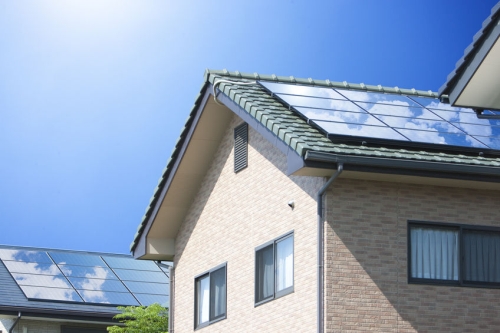
Learn how A1A Solar makes the installation process a breeze

You know you want to switch to solar-powered energy; however, you don’t know what’s in store for the installation process. The northeast Florida team at A1A Solar will make the process painless and ease any anxieties you may have. A1A Solar follows six simple steps to ensure your home or business is set up for success.
Step 1: Initial on-site consultation
The A1A Solar team will meet you at the location of the proposed installation (note that this consultation is completely free of charge). The team will evaluate the space, go over your current energy bills, and design a system that specifically meets every need in order to get your desired outcome. Once you decide to go forward, A1A Solar will assist with financing options.
Step 2: Contracts and approvals
The engineers at A1A Solar will look over the space to see what requirements are necessary for installation. A1A Solar will submit all of the permitting and utility licenses that you need, along with an application to your HOA, if necessary. A1A Solar will then gather all equipment for your personalized project over the next few weeks, while the permitting and licensing process takes place. Once the A1A Solar team receives all the required parts and approval on licenses, they will schedule your installation.
Step 3: Installation day
Installation day will start between 8 a.m. and 9:30 a.m. The crew leader will introduce the team and answer any last-minute questions you may have. At this time, it’s important to note that there should be no items blocking your electric panel, so the crew can test your system after installation.
Step 4: Inspections
Most likely, a city inspector will swing by shortly after installation day to inspect the new system, ensuring that it aligns with all codes and regulations. After the city inspections are complete, your utility provider will do an inspection and make a request for a new electric meter specifically for your solar system.
Step 5: Meter replacement
Typically, within a week of the inspection, your utility company will install an electric meter that tracks the performance of the solar energy system.
Step 6: Your new power system
Once you have your new meter, the installation process has come to an end, and you can turn on your system! Now’s the time to enjoy your new solar system, save money, and be energy efficient for the coming years.
4 things to look for when choosing a company to install your solar energy system

Keep these things in mind as you search for a solar energy contractor

When you’re considering a solar energy system for your home or business, the price of installation is often a key factor. However, it’s equally important to look for a contractor who is well-qualified. A quality installation will save you from problems down the road that cost money and time. You should look for a licensed and insured contractor, who doesn’t use subcontractors, and who uses best industry practices.
- License
The solar energy contractor you choose should be fully licensed as an electrician with a journeyman qualification. Your contractor should also be qualified to work independently. A licensed solar contractor will have met key standards, including having completed an apprenticeship. Unlicensed and/or apprentice electricians are often cheaper; however, their workmanship is unreliable. - Insurance
A solar energy installation company that has the appropriate insurance is also something to look for. You want to be sure the company insures any equipment it uses in case it’s damaged or lost. Insurance also covers water leakage that might happen after installation and any mold that results from it. This is particularly important in northeast Florida, which tends to get a lot of rain during the summer. - No subcontractors
Your solar energy company shouldn’t use subcontractors to complete the installation because subcontractors are unreliable. A company that installs your system themselves instead of outsourcing allows for a direct line of communication should problems arise during or after installation. - Experienced roofers
Solar energy system installations require roofing work, so it’s essential that the company you select uses experienced roofers. Ask the company if it installs metal flashing and 50-year sealants as its anti-leaking measures. These are the gold standards that top solar contractors use to prevent water damage to your home.
A solar energy system is a long-term investment that provides benefits for decades. Make sure you use licensed, trained professionals for your install, and you won’t be paying more later for problems down the road.


